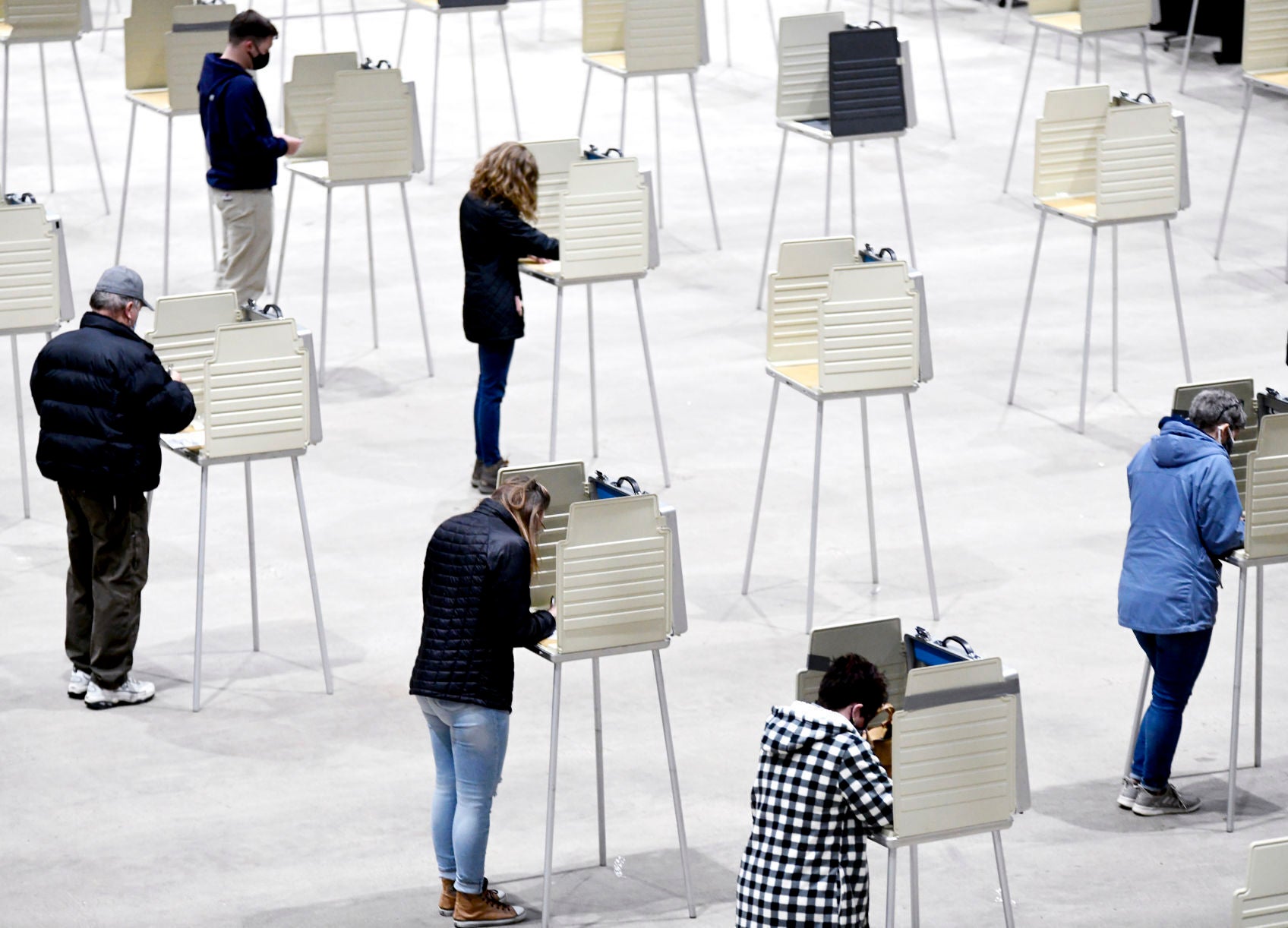North Dakota poll workers can’t demand citizenship proof from voters, attorney general says
The North Dakota attorney general says some poll workers who created confusion and frustration in the spring primary by allegedly demanding proof of United States citizenship particularly from immigrants and people of color had no power to do that

Your support helps us to tell the story
From reproductive rights to climate change to Big Tech, The Independent is on the ground when the story is developing. Whether it's investigating the financials of Elon Musk's pro-Trump PAC or producing our latest documentary, 'The A Word', which shines a light on the American women fighting for reproductive rights, we know how important it is to parse out the facts from the messaging.
At such a critical moment in US history, we need reporters on the ground. Your donation allows us to keep sending journalists to speak to both sides of the story.
The Independent is trusted by Americans across the entire political spectrum. And unlike many other quality news outlets, we choose not to lock Americans out of our reporting and analysis with paywalls. We believe quality journalism should be available to everyone, paid for by those who can afford it.
Your support makes all the difference.Some poll workers in North Dakota who created confusion and frustration during the spring primary by allegedly demanding proof of United States citizenship particularly from immigrants and people of color had no power to do that, the state attorney general said in an opinion that has drawn mixed reviews.
Attorney General Drew Wrigley said in a five-page document released late Wednesday that North Dakota law does not require a voter to provide documents of citizenship in order to cast a ballot. Every voter is asked if they are a citizen and if they answer yes, they should be allowed to vote provided they have proper ID, Wrigley said.
“There are legislative provisions that could alter this legal structure in North Dakota if enacted by a future legislative assembly, but they are not yet before me,” Wrigley wrote.
Many primary voting complaints were lodged in Fargo, which has the largest new American population in the state. Voting rights activists call Wrigley’s opinion a step in the right direction but some, like Amy Jacobson, are not clear whether all of them, including poll workers, got the message. Cass County, where Fargo is located, just completed two days of training for voting site volunteers.
“We are cautiously optimistic,” said Jacobson, executive director of Prairie Action ND. “We have also heard that there have been some pushback from a few people attending the training who are upset about the process.”
Cass County State's Attorney Birch Burdick, who sent a letter in July asking for Wrigley's opinion, essentially delivered the same information on the citizenship question to poll trainees on Tuesday and Wednesday, before the attorney general filed his opinion. Burdick heard several “concerns” from people.
“Over the two days of training there were lots of questions about the basis for the legal advice I provided on the topic,” Burdick said. “In the last session, one worker flat out told me I was wrong.”
North Dakota does not have voter registration. Acceptable IDs include a North Dakota driver’s license, a North Dakota non driver’s identification card, a tribal government-issued identification or a long-term care facility certificate.
The IDs must provide a legal name, date of birth and current address. If any of that information is inaccurate or out of date, a person can provide “supplemental documentation” such as current utility bills, bank statements or paychecks. Even if they cannot verify that, people can file a provisional ballot, obtain the proper ID and have it approved by a canvassing board, Cass County Election Administrator Murray Nash said.
“I believe the confusion has now been clarified by the state attorney general,” Nash said, adding that he expects “plain sailing” on Election Day if everyone comes prepared.
Sewit Eskinder, a Black woman from Fargo who was born and raised in the Minneapolis area, was rejected at one polling site in the spring primary after showing her Real ID card. She said she's not “super confident” that consistent changes to make it easier for people of color to vote.
“Those people who made it hard to vote in the first place will likely still be there and I’m not certain the training will be strenuous enough,” said Eskinder, a teacher and artist. “I am planning to vote in person again but I am worried of a repeat of last time — not just for myself but for others, too.”
Jacobson, who along with representatives from the American Civil Liberties Union and other groups monitored polling sites in the spring, said she's happy with Wrigley's opinion, but that fact he waited until two week before the election might not be enough to thaw the chilling effect resulting from the primary. She said while the citizenship confusion was the most widespread issue, there were reports of non-English speaking voters also being denied the right to legal assistance.
An ad-hoc group that has been established since the June election has been helping new residents with voting requirements and has established a lawyer hotline, Jacobson said.


